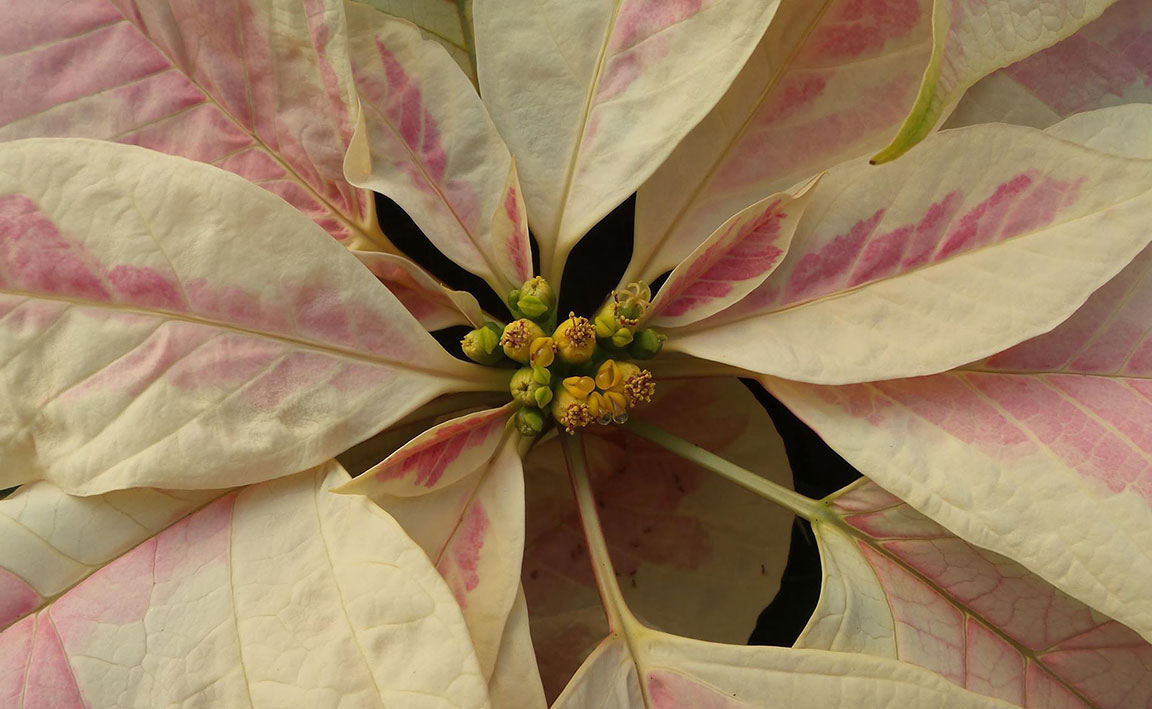
Maine Home Garden News — December 2020 Special Edition
In This Issue:
- Letter From the Editor
- Contributing Volunteers & Staff
- Thanks for Sharing Your Successes!
- Bonus Article: Keeping a Garden Record
Letter From the Editor
Dear Maine Home Garden News Readers,
While the Maine Home Garden News normally runs from March to October, I wanted to take a moment to reflect on the bright spots of a tough year and express gratitude for the kind and positive gardening community that grows strong in the state of Maine. Additionally, you’ll find a bonus article to help you also reflect on the past season.
A children’s book called “The Little Gardener” by Emily Hughes echoed through my head throughout the growing season. It’s a tale of a tiny (think 3” tall) person living in a backyard garden with his pet worm. He loves to garden, but it’s way too big for him to tackle on his own. Just before sheer exhaustion forces him into a long nap, he whispers “I wish I had a little help.” As you can imagine, help swoops in and gives him a wonderful surprise when he awakens.
I sure missed the Master Gardener Volunteers and garden visitors this year but understood that our policy to close in-person programs was meant to keep everyone as safe as possible. There were many times when I felt very alone and overwhelmed by all that needed to be done. More so, I missed the comradery and sharing the peace and botanical treasures the garden revealed each week. When it was time to carefully start the reopening process for in-person volunteer efforts, I was so thankful for those who eagerly came out to help finish out the season, and was equally glad to hear from those who were staying safe at home, but still keeping in touch. Deep down, I knew the ending to this season’s story would end on a bright note.
To all who stayed in touch, asked questions, and participated in our virtual programs: THANK YOU! We are still tabulating the numbers, but it has clearly been a record-breaking year in many ways in regards to the number of questions we’ve answered and people we’ve engaged in programming. Your enthusiasm and hunger for information reinforced our commitment to connecting the people of Maine (and beyond) to unbiased, research-based horticulture educational opportunities.
With sincere gratitude,
Kate Garland, Horticulturist
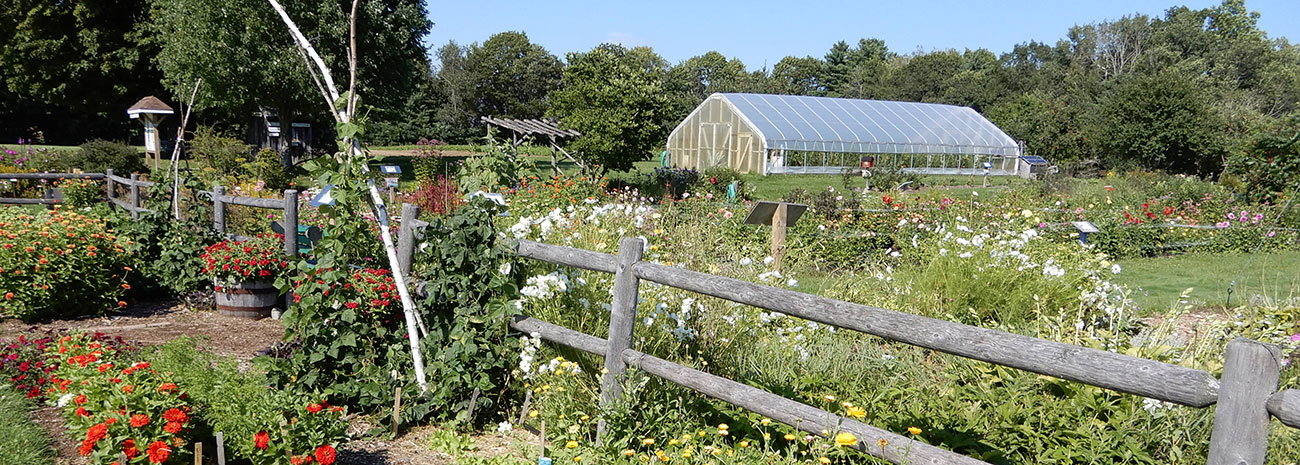
Contributing Volunteers & Staff
Special thanks to the following volunteers and staff who contributed to the 2020 Maine Home Garden Newsletter season:
| Abby Zelz | Ginger Laurits | Mary Michaud |
| Ann Marie Bartoo | Ivonne Vazquez | Michelle Snowden |
| Anna Fialkoff | Jean Potuchek | Nancy Donovan |
| Annika Schmidt | Jennifer Lund | Naomi Jacobs |
| Barbara Harrity | Judy and Herb Crosby | Pamela Hargest |
| Becca Gildred | Justin Wheeler | Rebecca Long |
| Caral Suel | Kerry Bernard | Richard Brzozowski |
| Cindy Eves-Thomas | Laura Heinlein | Robert Diamante |
| Clara Ross | Lavon Bartel | Sally Lucy Wright |
| Dave Fuller | Lisa Coburn | Tom Witwicki |
| David Handley | Liz Stanley | Wendy Robertson |
| Gabrielle Wicklow | Marjorie Peronto |
Thanks for Sharing Your Successes!
Much appreciation goes out to all who responded to our reader survey. If you haven’t already chimed in, please take a moment to share your feedback and ideas. Over 200 responses so far show increased consumption of home-grown food, improved soil quality, reduced pesticide use, increased use of native plants, positive engagement with the community, and so many more great success stories as a result of your engagement in the Maine Home Garden Newsletter and other UMaine Extension outreach efforts.
Do you appreciate the work we are doing?
Consider making a contribution to the Maine Master Gardener Development Fund. Your dollars will support and expand Master Gardener Volunteer community outreach on a statewide basis.
Bonus Article: Keeping a Garden Record
By Jean L. Potuchek, MGV, Androscoggin County
Sooner or later, most gardeners find themselves reaching for a piece of information from previous garden years and wishing for a record-keeping system more reliable than memory. Several years ago, I gathered information about gardeners’ record-keeping strategies through an online survey of 72 gardeners and case studies of four gardeners with different record-keeping systems.
I asked gardeners what kinds of information they recorded. The range of responses was broad, but the most common were (in order of frequency) lists of plants, diagrams of garden areas, notes and ideas for future gardening, sources of plants or seeds, planting and harvesting dates, bloom times of ornamental plants, and garden maintenance.
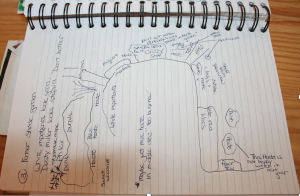 Almost all my gardening respondents used multiple strategies for organizing the information; the average gardener used four different organizing formats. Lists were the most commonly used, followed by photos. Sketches and garden journals were also used by the majority of gardeners who responded to the survey. Most used a combination of hand and computer records, but about one-third kept records only by hand, and a smaller number kept all their garden records electronically.
Almost all my gardening respondents used multiple strategies for organizing the information; the average gardener used four different organizing formats. Lists were the most commonly used, followed by photos. Sketches and garden journals were also used by the majority of gardeners who responded to the survey. Most used a combination of hand and computer records, but about one-third kept records only by hand, and a smaller number kept all their garden records electronically.
I interviewed four gardeners to get a deeper understanding of their record-keeping. Two grew only ornamental plants, while the other two grew both ornamentals and vegetables. From them, I learned that there is no right way to keep a garden record. All of the case-study gardeners had a primary record-keeping strategy, but supplemented it with other strategies.
One kept a daily electronic journal that included observations, thoughts and ideas, lists (for example, of fall maintenance chores), digital photos, and diagrams of plantings. She also used a small paper notebook to jot down observations for that day’s journal entry.
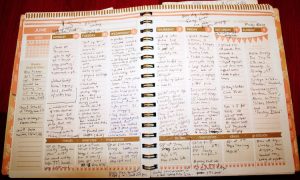 Another case-study gardener kept a paper garden record in the form of an almanac. She used a large-format spiral-bound calendar with a page for each week and additional space for notes, carrying this with her into the garden every day and recording observations. She supplemented the almanac with electronic spreadsheets for plant lists and for recording watering and precipitation.
Another case-study gardener kept a paper garden record in the form of an almanac. She used a large-format spiral-bound calendar with a page for each week and additional space for notes, carrying this with her into the garden every day and recording observations. She supplemented the almanac with electronic spreadsheets for plant lists and for recording watering and precipitation.
Another case-study gardener kept a garden journal in a spiral notebook, writing only when she observed something she wanted to remember. She would also draw sketches with design plans in her notebook, and tuck in items like soil test results, pages from plant catalogs or newspaper articles. She enjoyed reading through her notebook in winter, making notes for the next season.
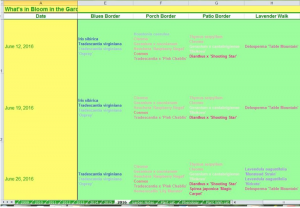 The fourth case-study gardener used a spreadsheet as her primary garden record, with pages for calendars of bloom times, lists of plants, fall and spring maintenance chores, and notes for the future. The spreadsheet was supplemented with computer graphic design plans and plant maps.
The fourth case-study gardener used a spreadsheet as her primary garden record, with pages for calendars of bloom times, lists of plants, fall and spring maintenance chores, and notes for the future. The spreadsheet was supplemented with computer graphic design plans and plant maps.
If you are thinking about beginning or revising a garden record, here are some tips for would-be garden record-keepers:
- Record-keeping is worth doing because it improves the practice of gardening and enhances the experience of gardening.
- Don’t try to do everything at once; start small with one or two types of information that you want to record.
- In choosing a record-keeping format, consider your personality, skills, needs, and constraints.
- Be flexible with your garden records, allowing them to evolve and change over time.
Subscribe to Maine Home Garden News
Let us know if you would like to be notified when new issues are posted. To receive e-mail notifications, click on the Subscribe button below.
University of Maine Cooperative Extension’s Maine Home Garden News is designed to equip home gardeners with practical, timely information.
For more information or questions, contact Kate Garland at katherine.garland@maine.edu or 1.800.287.1485 (in Maine).
Visit our Archives to see past issues.
Maine Home Garden News was created in response to a continued increase in requests for information on gardening and includes timely and seasonal tips, as well as research-based articles on all aspects of gardening. Articles are written by UMaine Extension specialists, educators, and horticulture professionals, as well as Master Gardener Volunteers from around Maine, with Katherine Garland, UMaine Extension Horticulturalist in Penobscot County, serving as editor. Special thanks to our 2020 Master Gardener Volunteer co-editors Naomi Jacobs and Abby Zelz.
Information in this publication is provided purely for educational purposes. No responsibility is assumed for any problems associated with the use of products or services mentioned. No endorsement of products or companies is intended, nor is criticism of unnamed products or companies implied.
© 2020
Call 800.287.0274 (in Maine), or 207.581.3188, for information on publications and program offerings from University of Maine Cooperative Extension, or visit extension.umaine.edu.
The University of Maine is an EEO/AA employer, and does not discriminate on the grounds of race, color, religion, sex, sexual orientation, transgender status, gender expression, national origin, citizenship status, age, disability, genetic information or veteran’s status in employment, education, and all other programs and activities. The following person has been designated to handle inquiries regarding non-discrimination policies: Director of Equal Opportunity, 101 North Stevens Hall, University of Maine, Orono, ME 04469-5754, 207.581.1226, TTY 711 (Maine Relay System).
